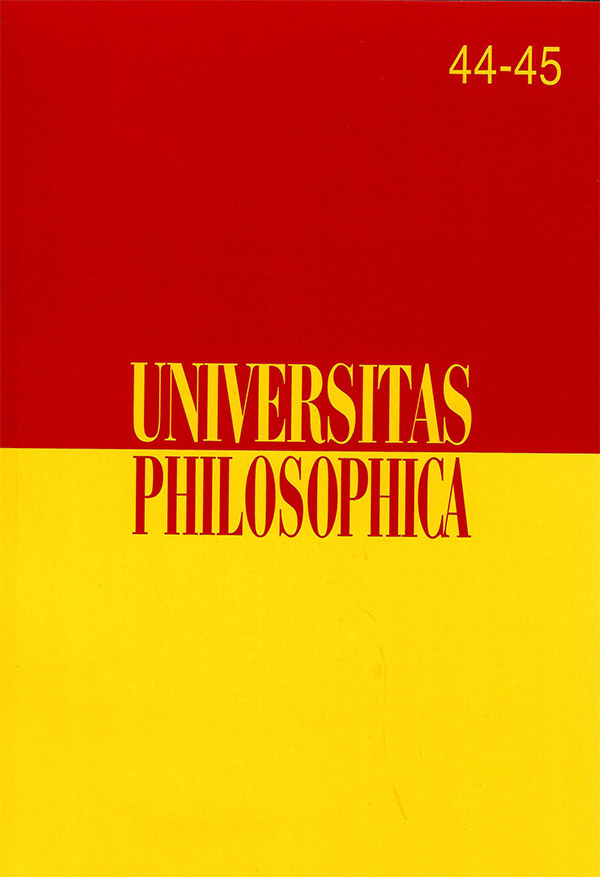Abstract
To illustrate some of the main philosophic categories Hannath Arendt proposes, in order to establish the public and private spheres, is the aim of this article. Beginning with a sketch of the dismantling and reconquest methodology, its author shows how Arendt goes back to Prima Philosophiae and clarifies the process of creation and transformation of these spheres throughout Western Philosophy and, collects tracks and marks of disappeared practices and clues of new projects to be disclosed as well. In a second section, the author takes again Arendt's proposal up to consider thought as a faculty of the spirit and insists on the primacy of common sense and everyday life world as irreplaceable spaces of public and private coexistence. The last section is devoted to Arendt's focusing on will; it explains how new categories of `birth' and `action' are worked out as momentous in the mutual deterrnination of the public and private spheres, overcoming its traditional confrontation and dichotomy.This journal is registered under a Creative Commons Attribution 4.0 International Public License. Thus, this work may be reproduced, distributed, and publicly shared in digital format, as long as the names of the authors and Pontificia Universidad Javeriana are acknowledged. Others are allowed to quote, adapt, transform, auto-archive, republish, and create based on this material, for any purpose (even commercial ones), provided the authorship is duly acknowledged, a link to the original work is provided, and it is specified if changes have been made. Pontificia Universidad Javeriana does not hold the rights of published works and the authors are solely responsible for the contents of their works; they keep the moral, intellectual, privacy, and publicity rights.
Approving the intervention of the work (review, copy-editing, translation, layout) and the following outreach, are granted through an use license and not through an assignment of rights. This means the journal and Pontificia Universidad Javeriana cannot be held responsible for any ethical malpractice by the authors. As a consequence of the protection granted by the use license, the journal is not required to publish recantations or modify information already published, unless the errata stems from the editorial management process. Publishing contents in this journal does not generate royalties for contributors.


